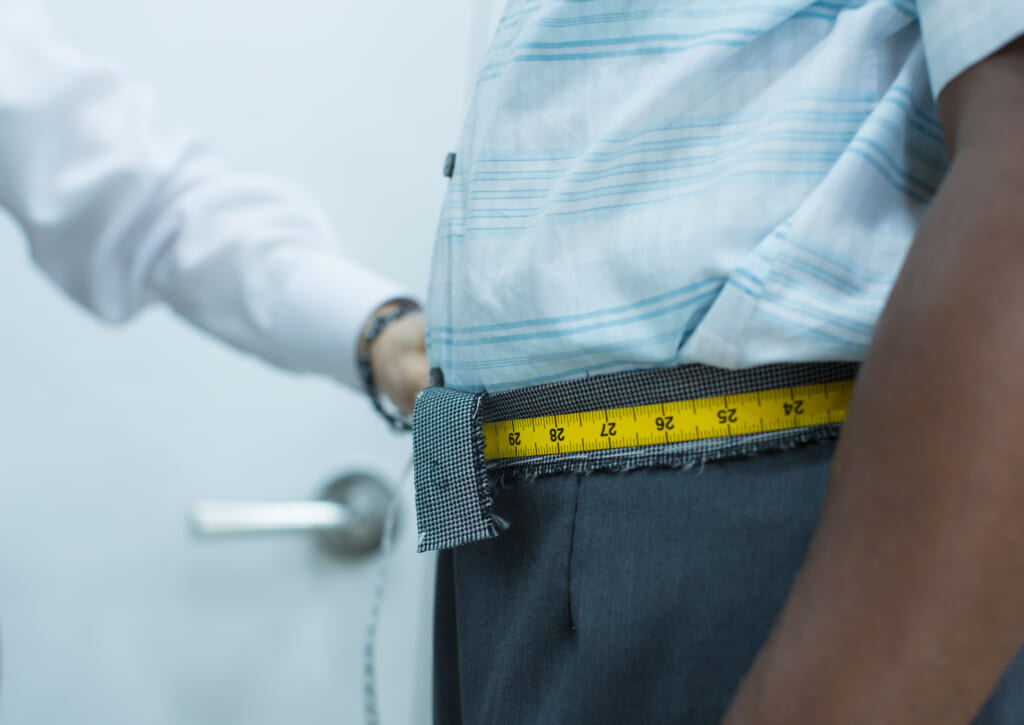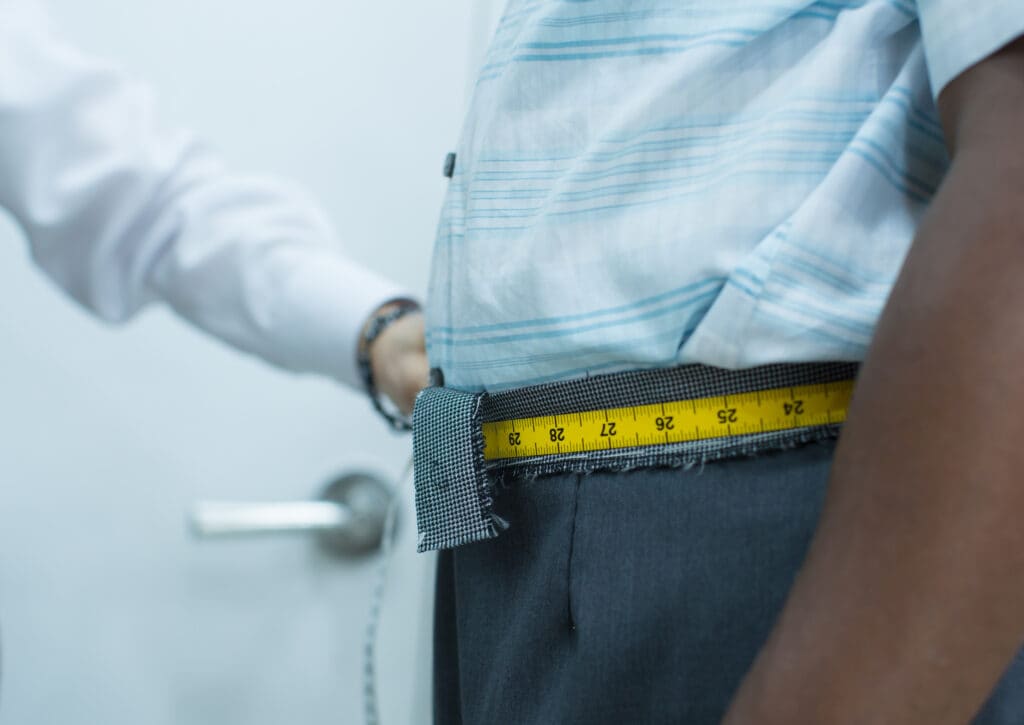How ‘the COVID-15’ is worsening Black America’s obesity problem
Opinion: The COVID-15 phenomenon underscores a reality that we’ve known for some time now — obesity is not a silent killer in Black America, it is front and center
Many Americans have gained a staggering amount of weight since the coronavirus outbreak and the main culprit is stress. The phenomenon is being called COVID-15, a play on the freshman fifteen which is an unexpected weight gain during one’s first year in college, but if only the weight gain was just 15 pounds.
According to a recent survey conducted by the American Psychological Association (APA), 61% of Americans reported undesired weight gain or loss since the World Health Organization (WHO) declared COVID-19 a pandemic.
The poll, which surveyed 3,103 people, found that two in five participants gained more weight than they intended, with an average increase of 29 pounds. Of those who reported weight gain, 1 in 10 said they had gained 50 pounds or more.
Read More: Sherri Shepherd reveals 20-pound weight loss: ‘Believing in my worth’
Stress significantly impacts the body’s ability to maintain a healthy weight; and those extra pounds you gained this year might be impacting your health, especially if you weren’t at a healthy weight to begin with. Four in 10 Americans, totaling about 100 million, are obese according to the CDC; and among African-American adults, nearly 48% are clinically obese compared to 32.6% of whites.

Statistics such as these are even more alarming given the many health risks associated with obesity. Diabetes and cardiovascular disease rates, which are highest in Black communities, are intimately tied to obesity; and rapid weight gain is especially ominous.
According to the National Institutes of Health, adults who gain more than 11 pounds in a year are twice as likely to develop Type II diabetes mellitus and coronary heart disease, and those who gain more than 24 pounds are 1.5 times more likely to experience an ischemic stroke.
The troubling trends of pandemic weight gain don’t end there. Rising unemployment rates, poor mental health, and stay-at-home orders have made sedentary lifestyles the norm. Additional contributing factors such as inequities in stable and affordable housing, income and access to quality education have made matters worse.
Read More: Biden to announce funding for affordable housing, broadband in jobs plan
Each one of these factors has the potential to directly or indirectly influence an individual’s chance to live a longer and healthier life, but when you combine this with disparities in access to affordable and healthy food or safe places to be physically active, the picture of obesity in the African-American community begins to take shape.
Even more, obesity today often means obesity tomorrow. The influences of genetics and family environment on our body habitus have a generational impact. Studies show that around 30-40% of a child’s BMI is inherited from their parents, with that number increasing to about 60% for obese children.
The COVID-15 phenomenon underscores a reality that we’ve known for some time now: obesity is not a silent killer in Black America, it is front and center. While obesity in Black America has been a problem, it may be the most significant lingering symptom of the COVID-19 pandemic if we don’t do something about it.
Fortunately, lifestyle changes like daily walks and keeping a food journal to avoid mindless eating are accessible health alternatives. A small amount of weight loss can go a long way – even five to seven pounds can reduce blood sugar, blood pressure and cholesterol levels. Routine exercise may result in higher weight loss amounts.

The U.S. Preventive Services Task Force recommends 30 minutes of moderate-intensity exercise, which means performing any physical activity that breaks a sweat, five times a week. Research shows that dropping 10% or more of your total body weight can have drastic health effects like reducing arthritis pain, lessening anxiety and depression, increasing heart health, and alleviating sleep apnea and other breathing problems.
Since the start of the pandemic, Black Americans have died at 3 times the rate of white Americans. While the relationship between the disproportionate impact of the virus on Black communities has been widely discussed, we have been reluctant to address the unhealthy individual and collective behaviors that have led to the preexisting conditions that continue to plague us.
We simply cannot avoid or put off this conversation any longer. The journey to a healthier Black America starts here; and while I admit that systemic changes are desperately needed, we must first take control of our health by creating culturally relevant and individually tailored anti-obesity initiatives that work for us.
The journey to a better tomorrow starts today, and it starts with you.

Dr. Shamard Charles is an assistant professor of public health and health promotion at St. Francis College and sits on the anti-bias review board of Dot Dash/VeryWell Health. He is also host of the health podcast, Heart Over Hype. He received his medical degree from the Warren Alpert Medical School of Brown University and his Masters of Public Health from Harvard’s T.H. Chan School of Public Health. Previously, he spent three years as senior health journalist for NBC News and served as a Global Press Fellow for the United Nations Foundation. You can follow him on Instagram @askdrcharles or Twitter @DrCharles_NBC.
Have you subscribed to theGrio’s “Dear Culture” podcast? Download our newest episodes now!
TheGrio is now on Apple TV, Amazon Fire and Roku. Download theGrio.com today!
The post How ‘the COVID-15’ is worsening Black America’s obesity problem appeared first on TheGrio.

